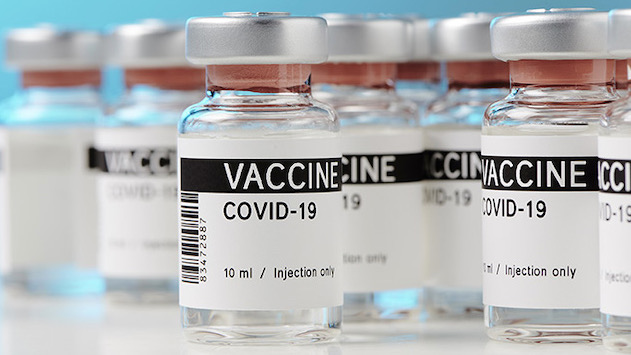The Vatican and the U.S. bishops have affirmed the morality of several of the recent anti-COVID vaccines, some developed using testing that involved embryonic stem cells. They have evaluated the methods employed for each of the vaccines currently approved and encouraged the use of those least morally compromised. But where options are limited, they say, the faithful will not be sinning by being vaccinated. This teaching follows the orthodox moral analysis that has existed for decades, including the papacies of St. John Paul II and Benedict XVI. There remain, however, a few loose ends.
We sin when we choose an evil action. We know it is wrong, and we freely do it anyway. We cooperate with the sinful acts of others when we approve of or facilitate their sin. When we vote for a politician because of his pro-abortion positions, we formally cooperate in the evil he promotes. If we oppose his pro-abortion policies and vote for him anyway, we materially cooperate in the evil he supports. If the material cooperation is avoidable (it’s possible to vote for a candidate that has comparatively more morally upright policy positions), we are guilty of the sin.
A nurse who disapproves of abortion but assists an abortionist during the medical procedure also shares in the guilt with “proximate material cooperation.” Hospital maintenance personnel who mop the floors of an abortion facility may or may not be guilty of sin. The clean-up is “remote material cooperation,” but there is an obligation to seek employment elsewhere then, if possible.
These moral analyses are rational, but there are hard cases. In 1972, for example, an airplane crash stranded the Uruguayan rugby team in freezing weather. The survivors ate the bodies of their dead comrades to survive. As grotesque as the situation was, their moral status is certain. There was no formal cooperation in the death of the passengers. Their circumstances were desperate. Finally, there was little or no chance that the cannibalism would encourage murder. But one could hardly blame a person who chose to die rather than to dine on a teammate.
Among the notorious Nazi experiments on concentration camp prisoners (see here):
- Doctors immersed prisoners into tanks of ice water for hours at a time, often dying of exposure, to discover how long German pilots downed by enemy fire could survive the frozen waters of the North Sea.
- To develop a vaccination serum against tuberculosis, doctors injected live tubercle bacilli into the lungs of prisoners. They also removed lymph glands from the arms of twenty Jewish children.
- Doctors amputated the shoulders and legs of inmates in futile attempts to transplant the limbs onto other victims.
- Thousands of inmates had their genitals mutilated to discover cheap methods of mass sterilization.
Is it morally permissible for us today to use Nazi research to save lives? Doctor John Hayward, a Biology Professor at Victoria University, justified his use of the murderous Nazi hypothermia data with the same logic as the bishops and Holy See have applied to some COVID vaccines: “I don’t want to have to use the Nazi data, but there is no other and will be no other in an ethical world. . . .But not to use it would be equally bad. I’m trying to make something constructive out of it. I use it with my guard up, but it’s useful.”

Moral analyses using formal, proximate, and remote material cooperation apply to all of these examples. Yet, there remains an emotional factor. Could we blame family members of the victims for torching the research papers and rejecting those who blithely promote using the findings in the service of the common good?
The American bishops suggest (statement here) that the use of the COVID-19 vaccines is not only morally permissible but a matter of Christian charity: it “should be considered an act of love of our neighbor and part of our moral responsibility for the common good.”
Still, is a spontaneous disgust and rejection of medical research and vaccines based on unborn baby body parts unreasonable – indeed, sinful? Granting that being vaccinated does not jeopardize our salvation, does refusal constitute sin against charity?
Conspiracy theories abound. Some vaccinations cause sterility. How do we know whether authorities are using the entire population as experimental guinea pigs for population control or other ideological purposes? Conspiracy theories are, sometimes, true.
In 1974, the National Security Council – under Henry Kissinger’s direction – released a classified National Security Study Memorandum 200: Implications of Worldwide Population Growth for U.S. Security and Overseas Interests (NSSM200). President Ford adopted it as official U.S. policy.
In this extensive secret memorandum was a plan for a massive cultural transformation of Third World countries: “The great necessity is to convince the masses of the population that it is to their individual and national interest to have, on the average, only three and then only two children.” Cultural subversion would occur by targeting “those who are now in elementary school or younger.”
So, given our culture of death, the bishops’ cautions are extremely weak: “[W]e should be on guard so that the new COVID-19 vaccines do not desensitize us or weaken our determination to oppose the evil of abortion itself and the subsequent use of fetal cells in research.” How do we register our protest? Absent large-scale protest, will researchers and pharmaceutical companies pursue alternatives to using aborted baby body parts in their work? Such alternatives seem easily available.
People must push back as they can, and that may include – in some cases – refusing to be vaccinated with a particular vaccine. But they could use the backing of the bishops – and other leaders who understand what is at stake. Our shepherds should show resolve to resist Big Pharma’s Nazi-like experimentation, imposing ecclesiastical censures on transgressing Catholics cooperating in the machinery of death, including pro-abortion politicians at the highest levels of government.
Of course, there would be a public-relations firestorm. But that’s the price to pay if we want to do more than just talk about a “new evangelization.”
















